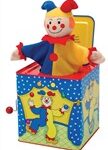
 Nobel judge Horace Engdahl, while echoing some of my concerns about creative writing programs, had this to say about transgressive fiction:
Nobel judge Horace Engdahl, while echoing some of my concerns about creative writing programs, had this to say about transgressive fiction:
Engdahl slammed novels which “pretend to be transgressive”, but which are not. “One senses that the transgression is fake, strategic,” he said. “These novelists, who are often educated in European or American universities, don’t transgress anything because the limits which they have determined as being necessary to cross don’t exist.”
As fans know, I’m not a big fan of consciously transgressive art, either.
I suspect Engdahl and I might disagree about which transgressions are fake and which limits don’t really exist, or (I would qualify it) which ones exist mostly as traumatic memories rather than overwhelming current realities. But the issue he’s raising is an important one. How transgressive can institutionalized writers really be?


 An ubiquitous theme in art criticism is
An ubiquitous theme in art criticism is